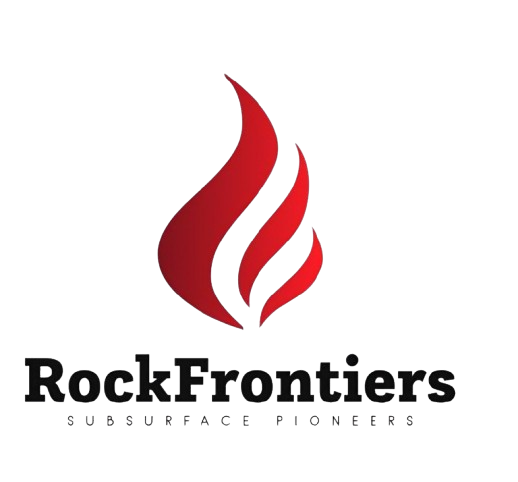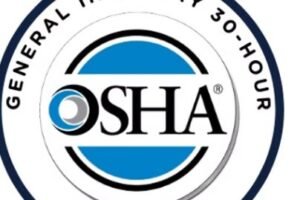🛢️ Advanced Nodal Analysis for Production Engineers
📘 Course Description This advanced course equips production and reservoir engineers with the expertise to analyze, model, and optimize well performance using Nodal Analysis. Participants will build deep understanding of inflow performance relationships (IPRs), outflow curves, system component modeling, and …
Overview
📘 Course Description
This advanced course equips production and reservoir engineers with the expertise to analyze, model, and optimize well performance using Nodal Analysis. Participants will build deep understanding of inflow performance relationships (IPRs), outflow curves, system component modeling, and practical applications for single and multiphase flow. Using industry software and field data, attendees will learn to identify bottlenecks, evaluate artificial lift options, and maximize well productivity.
🎯 Learning Objectives
✅ Master the principles of IPR, VLP (Vertical Lift Performance), and system analysis
✅ Accurately build and interpret nodal plots
✅ Analyze single- and multiphase flow scenarios
✅ Evaluate tubing, choke, and surface facility constraints
✅ Use nodal analysis to design, troubleshoot, and optimize production systems
✅ Integrate artificial lift and stimulation effects into nodal models
✅ Apply nodal analysis for well intervention planning
👥 Who Should Attend
-
Production engineers and supervisors
-
Completion engineers
-
Reservoir engineers involved in well performance
-
Technical service personnel
-
Well intervention and artificial lift specialists
🗂️ Training Format
✅ Theoretical instruction with practical examples
✅ Hands-on exercises with nodal analysis software (e.g., Prosper, WellFlo)
✅ Group discussions of real field challenges
✅ Step-by-step workflows for building nodal models
✅ Case studies highlighting optimization success stories
📅 Day-by-Day Agenda with Time Breaks
📅 Day 1: Nodal Analysis Fundamentals
| Time | Topic |
|---|---|
| 08:30 – 09:00 | Welcome, Introductions & Course Objectives |
| 09:00 – 10:30 | Nodal Analysis Overview: Principles & Uses |
| 10:30 – 10:45 | ☕ Coffee Break |
| 10:45 – 12:15 | Components of a Well System: Reservoir, Tubing, Chokes |
| 12:15 – 13:15 | 🍽 Lunch |
| 13:15 – 14:45 | Building Inflow Performance Relationships (IPR) |
| 14:45 – 15:00 | ☕ Coffee Break |
| 15:00 – 16:30 | IPR Models: Vogel, Fetkovich, and Multiphase Inflow |
📅 Day 2: Vertical Lift Performance & Outflow Modeling
| Time | Topic |
|---|---|
| 08:30 – 10:00 | Multiphase Flow Concepts |
| 10:00 – 10:15 | ☕ Coffee Break |
| 10:15 – 12:15 | Calculating Vertical Lift Performance (VLP) |
| 12:15 – 13:15 | 🍽 Lunch |
| 13:15 – 14:45 | Correlations for Pressure Drop & Friction |
| 14:45 – 15:00 | ☕ Coffee Break |
| 15:00 – 16:30 | Nodal Analysis Software Introduction & Setup |
📅 Day 3: Building & Interpreting Nodal Models
| Time | Topic |
|---|---|
| 08:30 – 10:00 | Assembling System Components in Software |
| 10:00 – 10:15 | ☕ Coffee Break |
| 10:15 – 12:15 | Plotting IPR & VLP Curves; Finding Operating Point |
| 12:15 – 13:15 | 🍽 Lunch |
| 13:15 – 14:45 | Analyzing Sensitivity to Tubing Size, Chokes, Reservoir Pressure |
| 14:45 – 15:00 | ☕ Coffee Break |
| 15:00 – 16:30 | Practical Exercise: Build and Analyze Nodal Models |
📅 Day 4: Optimization with Nodal Analysis
| Time | Topic |
|---|---|
| 08:30 – 10:00 | Identifying Bottlenecks & Restrictive Components |
| 10:00 – 10:15 | ☕ Coffee Break |
| 10:15 – 12:15 | Evaluating Artificial Lift Options Using Nodal Analysis |
| 12:15 – 13:15 | 🍽 Lunch |
| 13:15 – 14:45 | Stimulation & Well Intervention Impacts |
| 14:45 – 15:00 | ☕ Coffee Break |
| 15:00 – 16:30 | Case Studies: Field Applications of Nodal Optimization |
📅 Day 5: Advanced Topics & Integrated Analysis
| Time | Topic |
|---|---|
| 08:30 – 10:00 | Multilateral & Horizontal Well Challenges |
| 10:00 – 10:15 | ☕ Coffee Break |
| 10:15 – 12:15 | Integrating Reservoir & Surface Facility Constraints |
| 12:15 – 13:15 | 🍽 Lunch |
| 13:15 – 14:45 | Hands-On Final Exercise: Full Nodal Workflow |
| 14:45 – 15:00 | ☕ Coffee Break |
| 15:00 – 16:30 | Review, Group Presentation, Q&A & Certificate Ceremony |
📦 Materials Provided
✅ Comprehensive course manual
✅ Software-based nodal analysis templates
✅ Practical exercises and datasets
✅ Case study collection for future reference
✅ Certificate of Completion
Target audiences
- Reservoir Engineers, Geologists
You May Like
📘 Underbalanced Drilling (UBD) Techniques and Safety
🎯 Course Description: This intensive 5-day program focuses on Underbalanced Drilling (UBD) – an advanced technique used to drill wells where the hydrostatic pressure of the fluid is intentionally kept below formation pressure. Participants will learn how to implement UBD …
📘 IOSH Managing Safely
🎯 Course Description: A practical, 5-day program designed to help managers and supervisors learn how to manage safety and environmental responsibilities in their teams. Emphasis is placed on identifying risks, measuring performance, and leading safely using internationally recognized good practices. …
📘 IWCF Level 3 Well Control (Surface BOP)
🎯 Course Description: This is an intensive course aimed at drilling / well service personnel needing to gain supervisory competence in well control using surface blow‑out preventers (BOP) under the IWCF standard. It covers theory, hands‑on practice, and assessments for …
Advanced Specialist Petroleum GeoMechanics
📘 Course Description: This elite-level course is tailored for petroleum geomechanics specialists and senior subsurface professionals engaged in complex field development projects. It provides a deep technical dive into stress modeling, anisotropic rock behavior, coupled geomechanical-reservoir simulation, fault/fracture mechanics, and …
📘 OSHA 30‑Hour General Industry Safety and Health
🎯 Course Description: This 5‑day course provides in‐depth knowledge of workplace safety and health in general industry sectors. It covers OSHA regulations, hazard recognition, safety programs, and industry best practices. Participants will gain the expertise needed to maintain a safe …






